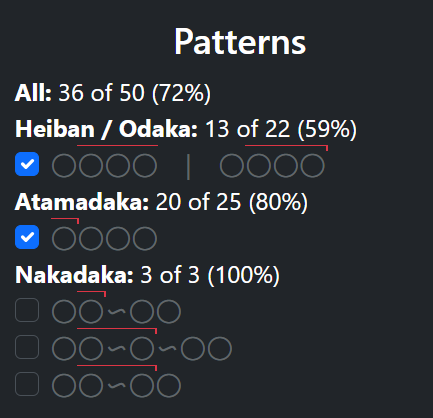So, I’ve been doing the mininal pairs practice at コツ for over a week and haven’t seen any improvements at all.
I am consistently getting less than 50%, which means that me trying is even worse than just guessing randomly…
How much effort do you all put into pitch?
Should I just give up on it?
My goal is just to be able to consume content (listen/read), so perhaps I should just ignore this. The worry is that I would have to re-learn the pitch for all words in the future if I ever decide I want to be good at speaking…




